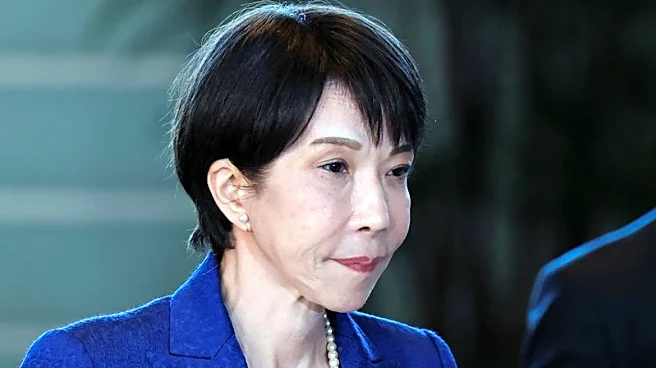What's Happening?
The U.S. Defense Secretary, Pete Hegseth, has dismissed Lieutenant General Jeffrey Kruse from his position as head of the Defense Intelligence Agency (DIA). This decision follows a controversial intelligence assessment regarding the impact of U.S. strikes on Iranian nuclear sites. The assessment, which was leaked to the media, suggested that the strikes had only temporarily set back Iran's nuclear program, contradicting President Trump's claims of having 'completely and fully obliterated' the program. The firing is part of a broader pattern of dismissals within the Trump administration, particularly targeting officials whose analyses conflict with the administration's narrative. The move has sparked discussions about the administration's approach to military and intelligence leadership.
Why It's Important?
This development highlights ongoing tensions within the U.S. government regarding the handling of intelligence and military operations. The dismissal of Lt. Gen. Kruse underscores the administration's intolerance for dissenting views within its ranks, particularly concerning sensitive international issues like Iran's nuclear capabilities. The broader implications include potential impacts on the morale and independence of intelligence agencies, as well as the credibility of U.S. military assessments on the global stage. Stakeholders such as military personnel, intelligence analysts, and international allies may view these actions as undermining the integrity of U.S. defense operations.
What's Next?
The firing of Lt. Gen. Kruse is expected to lead to further scrutiny of the Trump administration's handling of military and intelligence affairs. There may be increased pressure from Congress and the public for transparency and accountability in the administration's decision-making processes. Additionally, the reshuffling of military leadership could affect ongoing and future operations, particularly in regions like the Middle East where U.S. military presence is significant. Observers will be watching for any changes in U.S. policy towards Iran and how these internal dynamics might influence diplomatic relations.
Beyond the Headlines
The dismissal of high-ranking military officials raises questions about the balance between political oversight and military independence. It also brings to light the potential consequences of politicizing intelligence assessments, which could lead to biased decision-making and erode trust in U.S. military capabilities. The situation may prompt discussions about the need for reforms to protect the objectivity and integrity of military and intelligence agencies.










